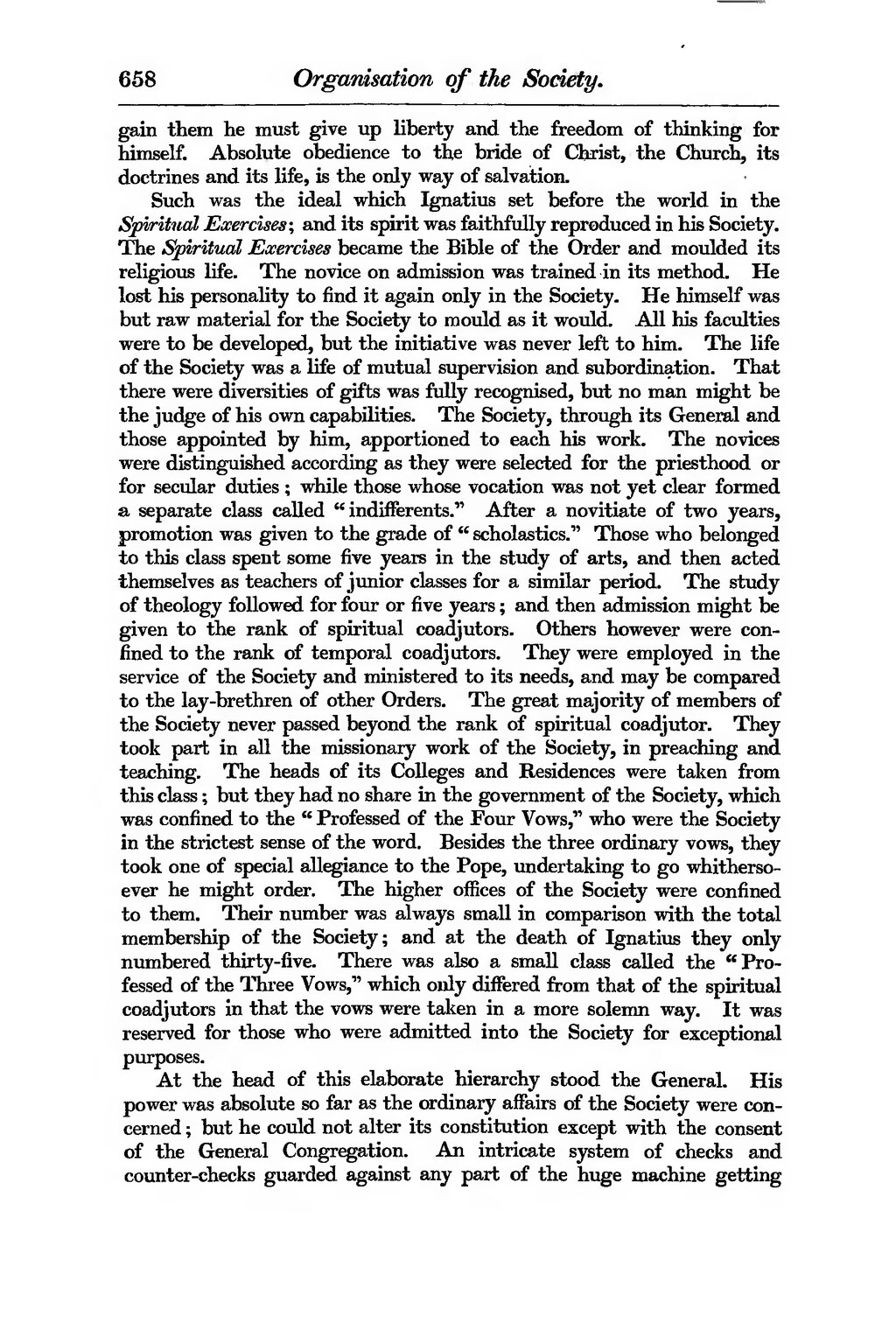gain them he must give up liberty and the freedom of thinking for himself. Absolute obedience to the bride of Christ, the Church, its doctrines and its life, is the only way of salvation.
Such was the ideal which Ignatius set before the world in the Spiritual Exercises; and its spirit was faithfully reproduced in his Society. The Spiritual Exercises became the Bible of the Order and moulded its religious life. The novice on admission was trained in its method. He lost his personality to find it again only in the Society. He himself was but raw material for the Society to mould as it would. All his faculties were to be developed, but the initiative was never left to him. The life of the Society was a life of mutual supervision and subordination. That there were diversities of gifts was fully recognised, but no man might be the judge of his own capabilities. The Society, through its General and those appointed by him, apportioned to each his work. The novices were distinguished according as they were selected for the priesthood or for secular duties; while those whose vocation was not yet clear formed a separate class called " indifférents." After a novitiate of two years, promotion was given to the grade of " scholastics." Those who belonged to this class spent some five years in the study of arts, and then acted themselves as teachers of junior classes for a similar period. The study of theology followed for four or five years; and then admission might be given to the rank of spiritual coadjutors. Others however were confined to the rank of temporal coadjutors. They were employed in the service of the Society and ministered to its needs, and may be compared to the lay-brethren of other Orders. The great majority of members of the Society never passed beyond the rank of spiritual coadjutor. They took part in all the missionary work of the Society, in preaching and teaching. The heads of its Colleges and Residences were taken from this class; but they had no share in the government of the Society, which was confined to the "Professed of the Four Vows," who were the Society in the strictest sense of the word. Besides the three ordinary vows, they took one of special allegiance to the Pope, undertaking to go whithersoever he might order. The higher offices of the Society were confined to them. Their number was always small in comparison with the total membership of the Society; and at the death of Ignatius they only numbered thirty-five. There was also a small class called the "Professed of the Three Vows," which only differed from that of the spiritual coadjutors in that the vows were taken in a more solemn way. It was reserved for those who were admitted into the Society for exceptional purposes.
At the head of this elaborate hierarchy stood the General. His power was absolute so far as the ordinary affairs of the Society were concerned; but he could not alter its constitution except with the consent of the General Congregation. An intricate system of checks and counter-checks guarded against any part of the huge machine getting
